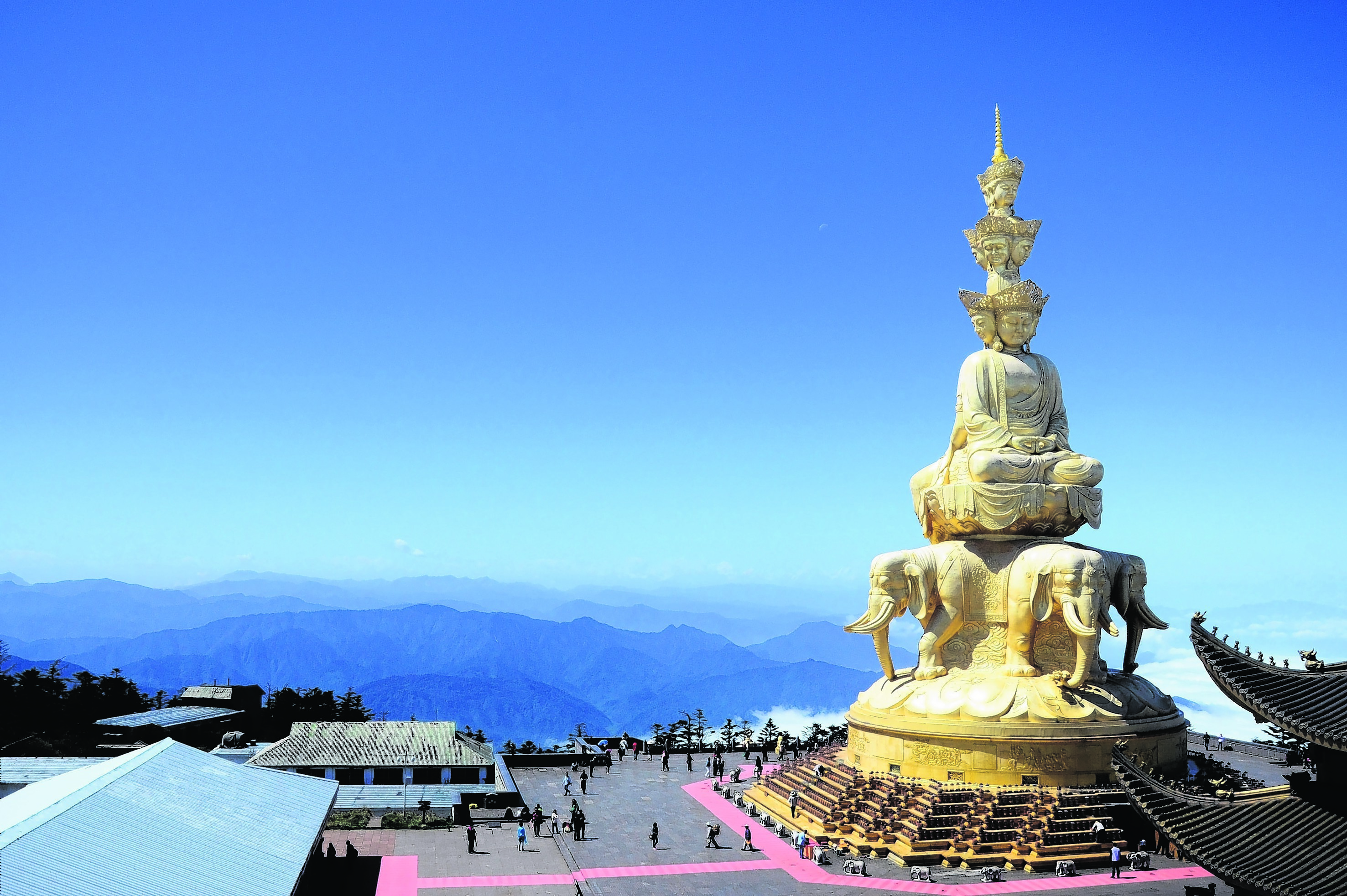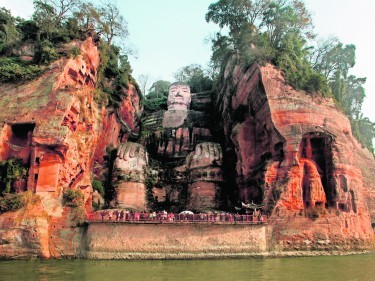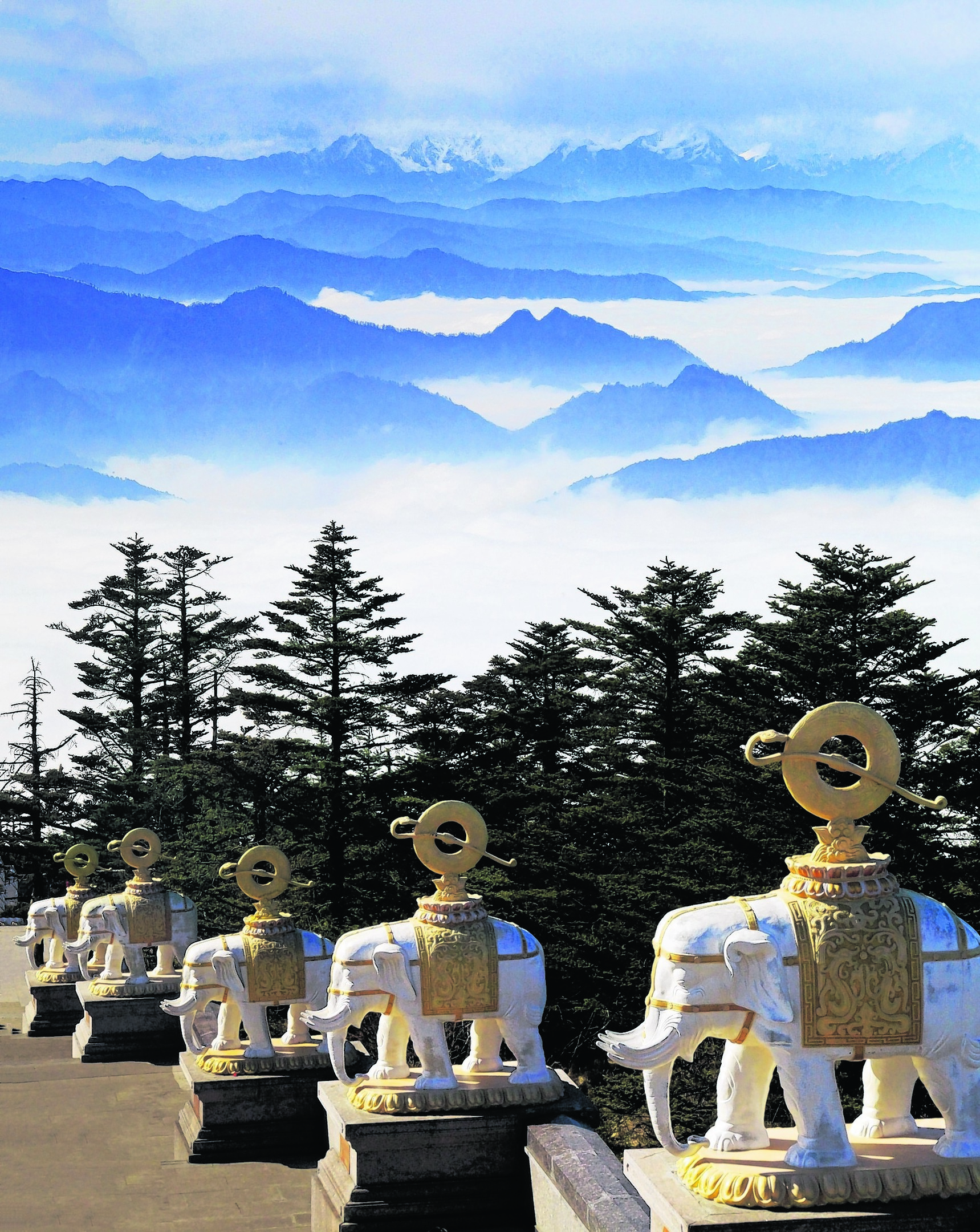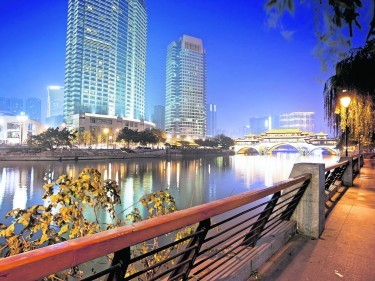From bustling cities to sacred mountains, Andy Welch explores the province of Sichuan
The cloud of smog that engulfs most of China hardly makes it the most appealing destination in the world, but instead of giving the entire country a wide berth you simply need to modify your choice of location.
Ignore the obvious choices of Shanghai and Beijing, and instead, look further south, and to places of high altitude, such as Emei.
In Chinese terms, it’s a village, but with a population of about 425,000, it’s anything but.
There’s much to see and do here, but the jewel in the region’s crown is undoubtedly Mount Emei.
It’s the tallest of the Four Sacred Buddhist Mountains of China, about an hour’s drive from the centre of Emei. Dozens of coaches travel up there each day. It’s about £8 return, and you’ll need a ticket to enter the national park, which is about £17.
The bus will only take you so far, so you’ll have to walk to Jinding, the top of the mountain, which takes about four hours up the stepped path, or you can walk for an hour and get a cable car up the rest of the way. It’s not too strenuous, especially as you’ll be stopping to admire the scenery. But with the high altitude and thin air, it’s breathtaking in more ways than one.
As you go, you’ll no doubt meet golden Tibetan macaques. It’s their habitat and they’re known to get a bit hands-on with tourists and their backpacks, but guards armed with catapults line most of the pathway to keep them at bay, and sticks are available at the base, for extra protection.
When you reach the top, all your effort will be rewarded. As you’ve climbed above the clouds and pollution, you’ll feel the sun on your face for the first time. The effect adds to the zen-like calm at the summit, looking out across the so-called Clouds Carpet with the wind whipping around your ears. Time seems to stand still and it would be easy to spend a couple of hours just staring out. There are also two Buddhist temples, one of which dates back to the first century and was the first one built in China.
A giant gold statue of Buddha himself stands 48metres tall – symbolic of the 48 wishes of the Amitabha Buddha – weighs 660 tonnes and has faces in 10 directions.
After you’ve made your way back down the mountain, you might want to visit another giant Buddha, this time at Leshan. You can get to it on foot (£8.50 a ticket), although if you want to fully appreciate how big it is (73m) you should go past on a boat.
The Buddha is the tallest in the world although the tourist “experience” around it doesn’t quite do it justice. Our boat trip cost £6.50 and lasted about 10 minutes. The dead cow floating in the river nearby didn’t do much for the ambience of the excursion.
Next on your itinerary should be Emei’s market. Traditional in every sense, Chinese delicacies, such as pickled chicken’s feet, yards of intestines, pork bellies and all sorts of weird and wonderful herbs and spices, line the market stalls, while buyers barter and haggle with the traders. Emei is a tourist hotspot, but a lot of that is internal tourism, meaning Brits will stand out and attract (friendly) stares from the locals. The market also has a live area, which you should probably only venture into if you have a strong stomach and don’t mind the sight of eels being filleted in front of you.
There are a number of great places to eat around the market. Lookout for the chicken noodle broth served in piping hot stone bowls, and the roadside barbecue joint we ate at one evening was one of the best meals you’ll ever have for just over a fiver.
The nearest good hotel to all this is the Anantara Emei. Recently opened in a sprawling compound, it has 90 rooms, 40 pavilions and 20 villas, which vary in price from about £140 a night to about £400. The rooms are luxurious and you can have cookery lessons from the talented chefs.
Chengdu is about two-and-a-half hours away from Emei by road, although a high-speed rail line is now open. It might have a bad human rights record and allegations of an oppressive authoritarian regime, but with a population of about 14million, it feels like a modern, relaxed city.
Much of it is built around the two tree-lined rivers that run through it, while China’s economic boom is on display for all to see. Eating out and socialising are hugely popular, but shopping, particularly in high-end boutiques and expensive designers, is seemingly the number one pastime.
Food in Chengdu is excellent. This is Sichuan, after all, the capital of hot and spicy food in China. They will, of course, make concessions for British palates.
The Giant Panda Breeding Research Base is a must-visit, as are the bustling food markets of Jinli Street and the beautiful nearby Wuhou Memorial Temple. But best of all is the People’s Park. Here, locals gather to put on mock fashion parades, take part in keep-fit dance classes, play Mahjong and, if they have single children over the age of 25, post notices to marry them off.
The region offers a mix of the ancient and the forward-thinking.
THE HOLIDAY
British Airways offers flights to Chengdu from Heathrow five times a week, starting from £740 per person.
A double room at Shangri-La Hotel (www.shangri-la.com; 0800 028 3337) Chengdu starts from RMB 1,608 (approx £151) per night, based on two sharing on a room-only basis.
A deluxe lake-view room at Anantara Emei Resort and Spa starts from RMB 1,581 (approx £141) per night, based on two sharing on a B&B basis.
Wendy Wu Tours offers a number of competitively priced group, private and tailor-made packages to China, including Chengdu and Mount Emei.



